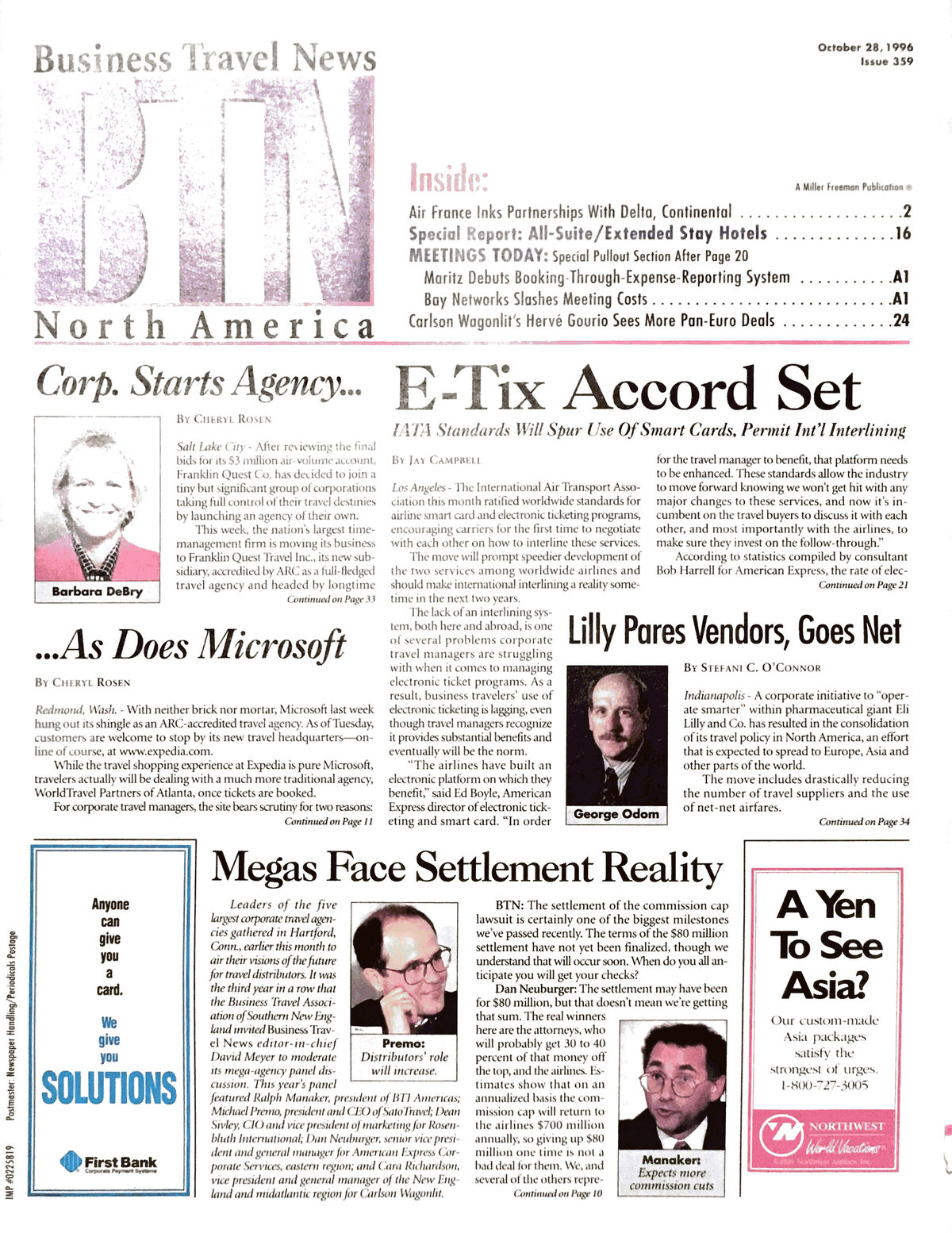The year 1996 was a pivotal time for the travel industry, with airlines and Computer Reservation Systems (CRSs) grappling with commissions, reservation fees, and cancellation fees in an effort to create value equity across the distribution chain. Despite disagreements on how to achieve this, one thing stood out above all: Online Booking Is Here to Stay. Corporate travel managers were quick to embrace this new technology, with big-name companies like Andersen Consulting, IBM, Hewlett-Packard, and Microsoft leading the charge.
The adoption of online booking by corporate travel managers was fueled by the potential to save money, drive compliance, and increase leverage with suppliers. The convenience of booking flights and accommodations online was a game-changer, even though there were initial challenges such as waiting times between reservations and bookings. Despite these hurdles, a Business Travel News survey showed that uptake for online booking implementation had doubled between 1995 and 1996.
One of the key players in the online booking revolution was Microsoft, which launched a booking website called Expedia. This platform allowed Microsoft employees and others to access travel bookings online, with fulfillment provided by WorldTravel Partners. Expedia was part of a larger initiative by Microsoft, codenamed Rome, which aimed to tailor corporate-oriented booking and expense systems for businesses.
The introduction of Expedia by Microsoft showcased the growing trend towards self-service automated booking systems. Companies like Franklin Quest and Microsoft were even launching ARC-accredited agencies as a line of business, signaling a shift towards corporations taking control of their travel operations. Expedia’s success was attributed to its innovative features like Fare Tracker service and a 24-hour help desk, which set it apart from competitors like Sabre’s Travelocity and Internet Travel Network.
As the travel industry continued to evolve in 1996, other significant developments included the introduction of smart card technology for airline ticketing, the rise of automated expense reporting systems, and the implementation of standardized electronic hotel RFP processes. Major airlines like American Airlines and British Airways also formed marketing partnerships to expand their reach and revenue share.
Overall, 1996 was a transformative year for the travel industry, marked by the rapid adoption of online booking technology and the shift towards self-service automated systems. Corporate travel managers embraced these changes as they sought to streamline operations, save costs, and increase efficiency in managing business travel. The groundwork laid in 1996 set the stage for further innovations in the years to come, shaping the future of corporate travel management.


